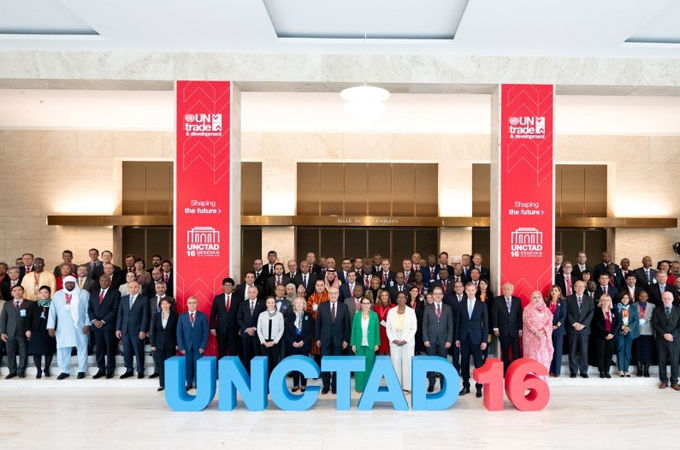
Major shifts – from new trade patterns and resilient services to clean technologies and artificial intelligence – offer a chance to reshape the global economy for greater inclusion and resilience, said UNCTAD Secretary-General Rebeca Grynspan.
In her opening address to the 16th United Nations Conference on Trade and Development (UNCTAD16), she stressed that the key question is not whether change will happen, but who will steer it and for whose benefit.
She warned that uncertainty, debt and falling investment are weighing heavily on the world’s poorest countries.
“We’ve come here to shape the future, together, so that trade, investment and technology work for people, not the other way around,” Grynspan said.
The four-day conference (October 20-23) has convened ministers of trade and economy, leaders of international organisations, representatives of civil society, private sector, youth and renowned experts to engage in high-level dialogue on global trends and policy perspectives on trade, finance and debt, investment, development and the digital economy.
The quadrennial conference is UNCTAD’s highest decision-making body, bringing together 195 member states to assess pressing trade and development issues, weigh policy options and craft multilateral responses.
What’s on the agenda
Across more than 40 high-level sessions, ministerial roundtables and events, delegates will focus on practical routes to resilient supply chains, fairer finance, productive investment and an inclusive digital economy.
Discussions will examine how countries can navigate today’s uncertainties while laying foundations for sustainable growth that benefits everyone, everywhere.
Historic crossroads urging collective response
Leaders addressing the opening session also called for a fundamental shift in development mindset.
President José Ramos-Horta of Timor Leste, speaking via video message, called for a renewed commitment to rebalance the rules of global commerce, decisive action on debt, bridge the digital divide and ensure climate justice is reflected in trade and investment, especially for least developed countries.
Prime Minister Phạm Minh Chính of Viet Nam, in his video message, called for bold and effective reforms to the multilateral trading and financial systems, while reaffirming his country’s support for the UN’s central role in tackling “global and people-centred issues” linked to sustainable development.
Prime Minister Mia Amor Mottley of Barbados, in a pre-recorded message, praised the “transformative response” of UNCTAD in carrying out the Bridgetown Covenant adopted at the organization’s 15th quadrennial conference held in Barbados.
“We must empower UNCTAD to be that space, where new global consensus on links between trade and development are forged for the prosperity of all,” said the prime minister.
Multilateralism in action at UNCTAD16
UNCTAD16 takes place amid wide-ranging reform efforts aimed at making the United Nations and the multilateral system better adapted to pressing challenges now and into the future.
“Progress in trade and development is critical to that renewal", said Annalena Baerbock, President of the UN General Assembly.
The president urged countries to ensure that trade uplifts rather than divides, empowers rather than excludes: “Because a more equitable global economy is essential to demonstrating that multilateralism still works for all.” - TradeArabia News Service
